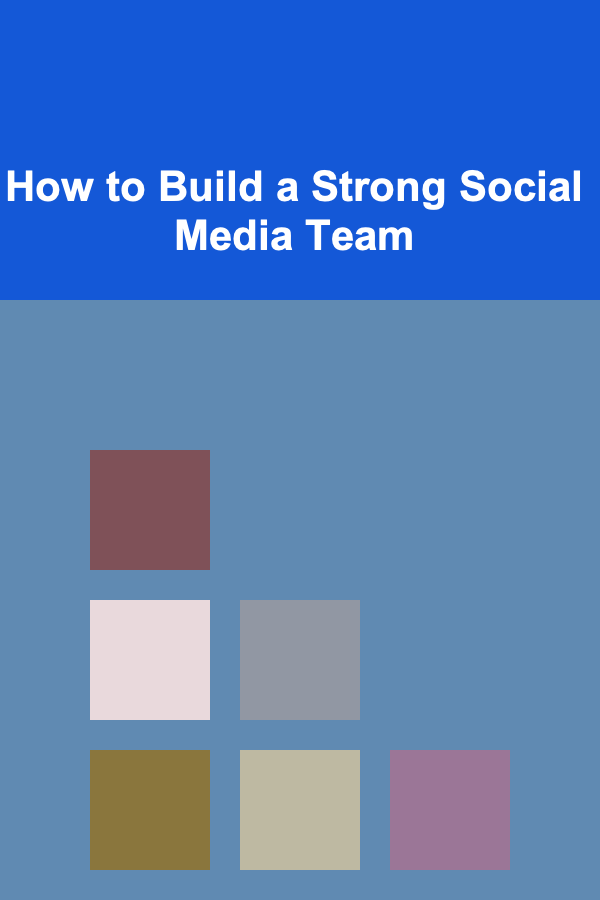
How to Care for Your Scalp for Healthy Hair Growth
ebook include PDF & Audio bundle (Micro Guide)
$12.99$9.99
Limited Time Offer! Order within the next:

Healthy, vibrant hair starts at the root -- literally. The scalp, often overlooked, is the foundation upon which your hair grows. Just like soil for a plant, a healthy scalp provides the necessary environment and nutrients for strong, resilient, and flourishing hair. Ignoring scalp health can lead to a host of problems, including dryness, itchiness, dandruff, hair loss, and stunted hair growth. This comprehensive guide will delve into the intricacies of scalp care, providing you with the knowledge and tools to cultivate a healthy scalp and promote optimal hair growth.
Understanding Your Scalp: The Foundation of Healthy Hair
Before diving into specific care practices, it's crucial to understand the anatomy and physiology of your scalp. The scalp is essentially an extension of the skin on your face and body, albeit with a denser concentration of hair follicles. It comprises several layers, including the epidermis (outer layer), dermis (middle layer), and hypodermis (innermost layer). The dermis contains hair follicles, sebaceous glands (which produce sebum, a natural oil), sweat glands, blood vessels, and nerve endings.
The health of your scalp is influenced by several factors, including:
- Genetics: Predisposition to conditions like dandruff, seborrheic dermatitis, and androgenetic alopecia (pattern hair loss) can be inherited.
- Hormones: Hormonal imbalances, especially those related to androgens (male hormones), can significantly impact hair growth and scalp health. Conditions like PCOS (Polycystic Ovary Syndrome) can lead to hair thinning.
- Diet: Nutrient deficiencies, particularly in iron, zinc, biotin, and protein, can weaken hair and compromise scalp health.
- Hygiene: Infrequent or improper washing can lead to product buildup, oil accumulation, and the proliferation of bacteria and fungi, contributing to scalp issues.
- Stress: Chronic stress can disrupt hormonal balance and compromise the immune system, negatively impacting hair growth and scalp health.
- Environmental Factors: Exposure to harsh weather conditions, pollution, and UV radiation can damage the scalp and hair.
- Underlying Medical Conditions: Certain medical conditions, such as thyroid disorders, autoimmune diseases, and infections, can manifest as scalp problems and hair loss.
Identifying Your Scalp Type: A Crucial First Step
Just like skin, scalps can be classified into different types, each requiring specific care strategies. Identifying your scalp type is essential for choosing the right products and establishing an effective care routine.
Normal Scalp
A normal scalp is balanced, neither excessively oily nor dry. It doesn't experience frequent irritation, itching, or flaking. The hair growing from a normal scalp is typically healthy, strong, and lustrous.
Characteristics:
- Minimal oiliness or dryness
- No persistent itching or irritation
- Healthy hair growth
- Infrequent dandruff
Care Recommendations:
- Use a gentle, sulfate-free shampoo and conditioner.
- Wash hair as needed (typically 2-3 times per week).
- Avoid harsh styling products.
- Maintain a healthy diet and lifestyle.
Oily Scalp
An oily scalp produces excess sebum, leading to greasy hair that appears limp and lifeless. Individuals with oily scalps often need to wash their hair more frequently.
Characteristics:
- Excessive oil production
- Greasy hair that gets oily quickly
- Potential for clogged pores and acne on the scalp
- Hair may appear limp and flat
Care Recommendations:
- Use a clarifying shampoo to remove excess oil and buildup.
- Wash hair frequently (potentially daily).
- Avoid heavy conditioners and styling products near the scalp.
- Consider using dry shampoo between washes.
- Ensure adequate intake of B vitamins, which can help regulate sebum production.
Dry Scalp
A dry scalp lacks sufficient moisture, leading to itchiness, flaking, and tight skin. Dry scalps are often prone to dandruff.
Characteristics:
- Itchiness and tightness
- Flaking (often mistaken for dandruff)
- Dry, brittle hair
- Potential for scalp irritation and inflammation
Care Recommendations:
- Use a moisturizing shampoo and conditioner.
- Wash hair less frequently (1-2 times per week).
- Avoid hot water when washing hair.
- Use a leave-in conditioner or hair oil to hydrate the scalp and hair.
- Consider a scalp massage with a hydrating oil like coconut oil or jojoba oil.
- Hydrate internally by drinking plenty of water.
Sensitive Scalp
A sensitive scalp is easily irritated by products, environmental factors, or stress. It may experience redness, itching, burning, or stinging sensations.
Characteristics:
- Redness and inflammation
- Itching, burning, or stinging sensations
- Reactions to certain products or ingredients
- Potential for dryness and flaking
Care Recommendations:
- Use hypoallergenic, fragrance-free shampoos and conditioners.
- Avoid products containing harsh chemicals, sulfates, and alcohol.
- Patch-test new products before applying them to the entire scalp.
- Avoid harsh scrubbing or scratching the scalp.
- Manage stress through relaxation techniques.
- Consider consulting a dermatologist to identify potential allergens or irritants.
Essential Scalp Care Practices for Healthy Hair Growth
Once you've identified your scalp type, you can implement specific care practices to maintain a healthy scalp environment and promote optimal hair growth. These practices encompass cleansing, exfoliation, moisturizing, and protection.
1. Proper Cleansing: The Foundation of Scalp Health
Cleansing your scalp regularly is crucial for removing dirt, oil, product buildup, and dead skin cells. However, over-washing can strip the scalp of its natural oils, leading to dryness and irritation. The frequency of washing depends on your scalp type:
- Oily Scalp: Daily or every other day washing may be necessary.
- Normal Scalp: 2-3 times per week is generally sufficient.
- Dry Scalp: 1-2 times per week is recommended.
- Sensitive Scalp: Wash as infrequently as possible, using gentle, hypoallergenic products.
Tips for Proper Cleansing:
- Choose the right shampoo: Select a shampoo formulated for your scalp type. Look for sulfate-free options, especially if you have a dry or sensitive scalp.
- Massage gently: Use your fingertips to massage the shampoo into your scalp in circular motions. Avoid using your nails, as this can cause irritation.
- Rinse thoroughly: Ensure all shampoo is rinsed out completely to prevent residue buildup.
- Condition properly: Apply conditioner primarily to the ends of your hair, avoiding the scalp to prevent oiliness.
- Use lukewarm water: Hot water can strip the scalp of its natural oils, so opt for lukewarm water instead.
2. Exfoliation: Removing Dead Skin Cells and Promoting Circulation
Just like the skin on your face, your scalp benefits from regular exfoliation. Exfoliation removes dead skin cells, unclogs hair follicles, and promotes blood circulation, which can stimulate hair growth. There are two main types of exfoliation:
- Physical Exfoliation: Involves using a scalp scrub or brush to physically remove dead skin cells.
- Chemical Exfoliation: Involves using products containing ingredients like salicylic acid or glycolic acid to dissolve dead skin cells.
Recommendations for Exfoliation:
- Frequency: Exfoliate 1-2 times per week.
- Choosing a method: Select a method that suits your scalp type. Physical exfoliation may be too harsh for sensitive scalps.
- Application: Apply the exfoliant to your scalp and massage gently in circular motions.
- Rinse thoroughly: Ensure all exfoliant is rinsed out completely.
Homemade Scalp Scrub Recipe (for non-sensitive scalps):
Mix 2 tablespoons of brown sugar with 1 tablespoon of olive oil and a few drops of essential oil (such as tea tree oil for its antifungal properties or lavender oil for its calming effect). Gently massage onto the scalp and rinse thoroughly.
3. Moisturizing: Hydrating the Scalp and Preventing Dryness
Moisturizing is essential for maintaining a healthy scalp, especially if you have a dry scalp. Hydrated skin is more resilient and less prone to irritation and flaking. Here are some ways to moisturize your scalp:
- Scalp Oils: Apply a small amount of natural oil, such as coconut oil, jojoba oil, or argan oil, to your scalp and massage gently. Leave it on for at least 30 minutes or overnight before washing.
- Leave-in Conditioners: Use a leave-in conditioner formulated for your scalp type.
- Scalp Masks: Apply a hydrating scalp mask once or twice a week.
Choosing the Right Oil:
- Coconut Oil: Moisturizing and antifungal. May not be suitable for oily scalps.
- Jojoba Oil: Similar to the scalp's natural sebum. Suitable for most scalp types.
- Argan Oil: Rich in antioxidants and fatty acids. Good for dry and damaged scalps.
- Tea Tree Oil: Antifungal and antibacterial. Good for treating dandruff and other scalp conditions. Use with a carrier oil like coconut or jojoba, as it can be irritating on its own.
4. Scalp Massage: Stimulating Blood Circulation and Promoting Relaxation
Scalp massage is a simple yet effective way to improve scalp health. It stimulates blood circulation, which brings nutrients and oxygen to the hair follicles, promoting hair growth. It also helps to relieve tension and stress.
How to Perform a Scalp Massage:
- Use your fingertips to gently massage your scalp in circular motions.
- Focus on areas where you feel tension.
- Massage for 5-10 minutes daily.
- You can use a scalp massage brush or your fingertips.
Benefits of Scalp Massage:
- Increased blood circulation
- Stimulated hair growth
- Reduced stress and tension
- Improved product absorption
5. Protecting Your Scalp from Environmental Damage
Just like the skin on your face, your scalp is vulnerable to damage from environmental factors such as sun exposure, pollution, and harsh weather conditions.
Protection Strategies:
- Sun Protection: Wear a hat or scarf when spending extended periods outdoors in the sun. You can also use hair products containing UV protection.
- Pollution Protection: Wash your hair regularly to remove pollutants and use hair products with antioxidant properties.
- Harsh Weather Protection: Protect your scalp from cold, wind, and dry air by wearing a hat or scarf.
6. Diet and Hydration: Nourishing Your Scalp from Within
A healthy diet rich in vitamins, minerals, and antioxidants is essential for maintaining a healthy scalp and promoting hair growth. Deficiencies in certain nutrients, such as iron, zinc, biotin, and vitamin D, can contribute to hair loss and scalp problems.
Key Nutrients for Scalp Health:
- Iron: Helps carry oxygen to hair follicles. Found in red meat, leafy green vegetables, and beans.
- Zinc: Important for hair tissue growth and repair. Found in oysters, beef, and nuts.
- Biotin: Essential for keratin production. Found in eggs, nuts, and sweet potatoes.
- Vitamin D: Plays a role in hair follicle cycling. Obtained from sunlight exposure and fortified foods.
- Vitamin E: Antioxidant that protects hair follicles from damage. Found in nuts, seeds, and vegetable oils.
- Omega-3 Fatty Acids: Help keep the scalp hydrated. Found in fatty fish, flaxseeds, and chia seeds.
- Protein: The building block of hair. Found in meat, poultry, fish, beans, and lentils.
In addition to a healthy diet, staying hydrated is crucial for scalp health. Drink plenty of water throughout the day to keep your scalp moisturized.
7. Minimizing Heat Styling and Chemical Treatments
Excessive heat styling and chemical treatments can damage the hair shaft and scalp, leading to dryness, breakage, and hair loss. Minimize the use of heat styling tools such as hair dryers, curling irons, and straighteners. When you do use them, apply a heat protectant spray to your hair.
Similarly, limit the frequency of chemical treatments such as perms, relaxers, and hair dyes. These treatments can strip the hair of its natural oils and damage the scalp.
8. Managing Stress: Reducing the Impact on Your Scalp
Chronic stress can disrupt hormonal balance and compromise the immune system, negatively impacting hair growth and scalp health. Find healthy ways to manage stress, such as:
- Exercise: Regular physical activity can help reduce stress and improve overall health.
- Yoga and Meditation: These practices can help calm the mind and reduce stress levels.
- Spending Time in Nature: Exposure to nature has been shown to reduce stress and improve mood.
- Getting Enough Sleep: Aim for 7-8 hours of sleep per night.
- Talking to a Therapist: If you're struggling to manage stress on your own, consider seeking professional help.
Addressing Specific Scalp Concerns
While the general care practices outlined above are beneficial for most people, some individuals may experience specific scalp concerns that require targeted treatment.
Dandruff
Dandruff is a common scalp condition characterized by flaking skin. It can be caused by a variety of factors, including dry skin, seborrheic dermatitis, fungal infections, and sensitivity to hair products.
Treatment Options:
- Over-the-counter anti-dandruff shampoos: Look for shampoos containing ingredients like ketoconazole, selenium sulfide, zinc pyrithione, or salicylic acid.
- Prescription anti-dandruff shampoos: If over-the-counter shampoos are ineffective, your doctor may prescribe a stronger shampoo.
- Topical corticosteroids: Can help reduce inflammation and itching.
- Tea tree oil: Has antifungal properties and can help reduce dandruff.
Seborrheic Dermatitis
Seborrheic dermatitis is a chronic inflammatory skin condition that can affect the scalp, face, and other areas of the body. It is characterized by red, scaly patches of skin.
Treatment Options:
- Anti-dandruff shampoos: Similar to those used for dandruff.
- Topical corticosteroids: Can help reduce inflammation and itching.
- Antifungal creams: May be prescribed if a fungal infection is suspected.
- Light therapy: Can help reduce inflammation.
Scalp Psoriasis
Scalp psoriasis is an autoimmune condition that causes thick, scaly plaques to form on the scalp.
Treatment Options:
- Topical corticosteroids: Can help reduce inflammation and itching.
- Vitamin D analogs: Can help slow down the growth of skin cells.
- Salicylic acid: Can help remove scales.
- Coal tar: Can help reduce inflammation and itching.
- Light therapy: Can help reduce inflammation.
- Systemic medications: May be prescribed for severe cases.
Folliculitis
Folliculitis is an inflammation of the hair follicles. It can be caused by bacteria, fungi, or ingrown hairs.
Treatment Options:
- Antibacterial soaps: Can help kill bacteria.
- Topical antibiotics: May be prescribed for bacterial infections.
- Antifungal creams: May be prescribed for fungal infections.
- Warm compresses: Can help soothe inflammation.
Hair Loss
Hair loss can be caused by a variety of factors, including genetics, hormones, stress, diet, and medical conditions. If you're experiencing significant hair loss, it's important to consult a doctor to determine the underlying cause.
Treatment Options (depending on the cause):
- Minoxidil (Rogaine): A topical medication that can help stimulate hair growth.
- Finasteride (Propecia): An oral medication that can help block the production of DHT, a hormone that contributes to hair loss. (For men only)
- Low-level laser therapy (LLLT): Can help stimulate hair growth.
- Hair transplantation: A surgical procedure that involves transplanting hair follicles from one area of the scalp to another.
- Nutritional supplements: May be recommended if you have a nutrient deficiency.
- Treatment for underlying medical conditions: Addressing any underlying medical conditions that may be contributing to hair loss.
When to See a Doctor or Dermatologist
While many scalp conditions can be managed with over-the-counter treatments and home remedies, it's important to see a doctor or dermatologist if you experience any of the following:
- Severe itching or pain
- Scalp bleeding or pus
- Sudden or excessive hair loss
- Scaly or crusty patches that don't improve with over-the-counter treatments
- Signs of infection, such as fever, redness, or swelling
Conclusion: Cultivating a Healthy Scalp for Beautiful Hair
Caring for your scalp is an investment in the long-term health and vitality of your hair. By understanding your scalp type, implementing appropriate care practices, and addressing any specific concerns, you can create a healthy scalp environment that promotes optimal hair growth and prevents common scalp problems. Remember that consistency is key. Implementing these practices into your routine and making them a habit will reap significant rewards for the health and appearance of your hair. So, take the time to nourish your scalp, and watch your hair flourish!
Reading More From Our Other Websites
- [Personal Finance Management 101] How to Save Money on Everyday Expenses Without Sacrificing Quality
- [Beachcombing Tip 101] Hidden History: Artifacts and Relics Unearthed Along the Shoreline
- [Home Party Planning 101] How to Create a Themed Home Party Experience: From Concept to Execution
- [Home Security 101] Best Home Security Systems: Integrated with Smart Home Technologies
- [Personal Care Tips 101] How to Treat Dandruff with the Best Haircare Routine for Scalp Health
- [Beachcombing Tip 101] Budget-Friendly Beachcombing Tools That Deliver Professional Results
- [Personal Financial Planning 101] How to Minimize Debt While Building Your Credit History
- [Home Space Saving 101] How to Save Space in Your Pantry with Smart Organization Hacks
- [Home Space Saving 101] How to Use Hidden Compartments to Save Space in Your Home
- [Horseback Riding Tip 101] How to Build a Portable Riding Arena for Pop‑Up Events

How to Make Your Home Party More Enjoyable with DIY Decorations
Read More
How to Set Up a Home Movie Theater Experience for Family Movie Night
Read More
How to Use Diagrams for Visual File Organization
Read More
How to Build a Strong Social Media Team
Read More
How To Become a Thought Leader in Your Industry
Read More
How to Track Mortgage Interest When Refinancing
Read MoreOther Products

How to Make Your Home Party More Enjoyable with DIY Decorations
Read More
How to Set Up a Home Movie Theater Experience for Family Movie Night
Read More
How to Use Diagrams for Visual File Organization
Read More
How to Build a Strong Social Media Team
Read More
How To Become a Thought Leader in Your Industry
Read More